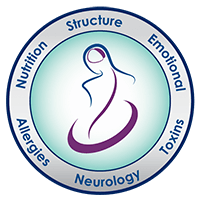
When we look at leaky gut syndrome, there are some really key foods to look at that you want to make sure to avoid because of their high association with leaky gut syndrome.
One of the main ones to consider is gluten. Gluten and its protein component gliadin, or also the mini gliadins that are associated with it, really comes into play. They by themselves can be a factor.
When we look at the association with genetically modified foods, particularly wheat or gluten association, we can see such an exponential increase of gliadin in the genetically modified grain versus the non-genetically modified grain. That has to be taken into consideration. It hasn’t been shown that gliadin or gluten in general is a tough food to digest, but its association with leaky gut syndrome has to be considered first and foremost.
Once we consider that, we also have to look at the connection of what we call cross-reactive foods. The cross-reactive foods are a category of foods that are similar enough to gluten or gliadin that your body says, “Hey, those look close enough. I’m going to attack those as well.” When it does, it creates an inflammatory response in the intestine, and that contributes to that leaky gut, that compromised intestinal lining that goes into a leaky gut syndrome.
When we have this discussion about foods or ingredients, we just have to also continue on this discussion of genetically modified foods. The integrity of genetically modified foods in their entirety, as far as their impact, is really unknown. So it is best to just avoid genetically modified foods, foods that are fake, additives. It is definitely best to avoid the food dyes, the preservatives, and all foods and ingredients that tie in or potentially tie in with an irritation to the intestinal lining and contribute to the leaky gut syndrome.
Dr. Greg Olsen at Olsen Chiropractic, APC can be reached at (949) 859-5192 and is located at 22691 Lambert St. #503, Lake Forest, CA 92630.
Click here to receive more information & to schedule your appointment.

